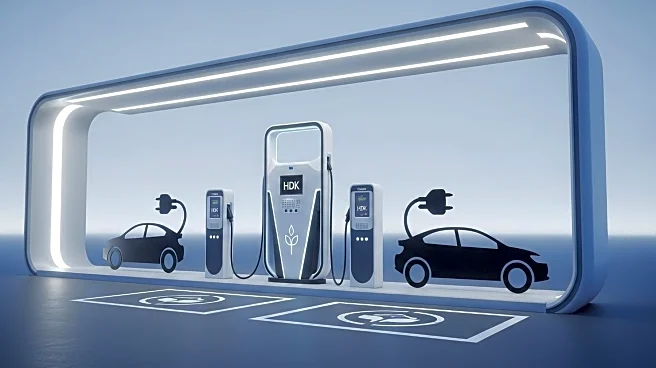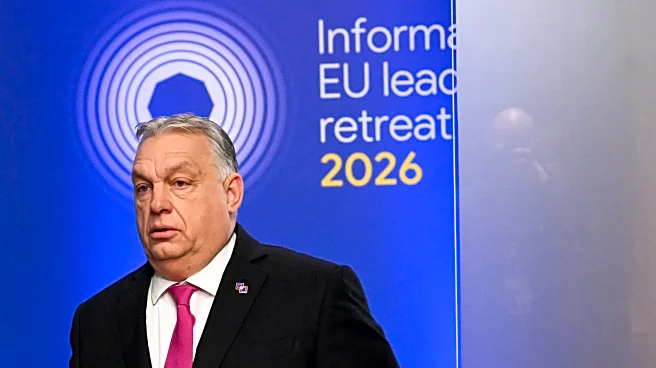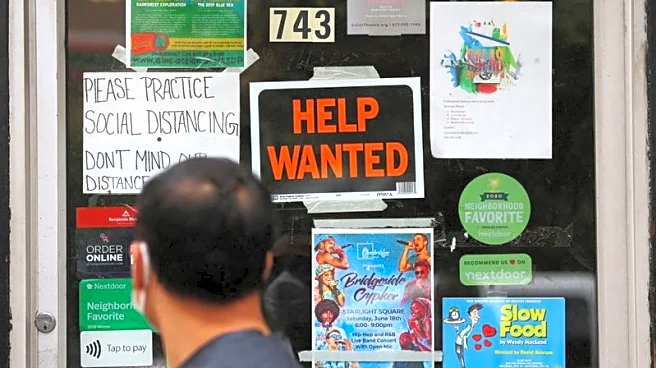What's Happening?
Ford and General Motors (GM) have decided to abandon their plans to extend the $7,500 electric vehicle (EV) tax credit for leased vehicles through the end of the year. This decision follows scrutiny from Republican Senators Bernie Moreno and John Barrasso, who raised concerns with the Treasury Department, labeling the plan as a 'loophole' and a violation of Congressional intent. Initially, Ford and GM had devised a strategy to purchase EVs from their dealers and lease them to customers with the tax credit included in the price. Despite clearing the plan with the Internal Revenue Service, both automakers have now retracted their efforts. The tax credit, which expired on September 30th, had previously spurred a surge in EV sales during July and August as consumers rushed to benefit from the discount.
Why It's Important?
The withdrawal of Ford and GM's plan to extend the EV tax credit is significant as it may impact the momentum of electric vehicle sales in the U.S. The tax credit was a crucial incentive for consumers, helping to offset the higher upfront costs of EVs compared to traditional vehicles. With the expiration of the credit, there is concern that EV sales could decline, affecting the automakers' strategies to increase their market share in the growing EV sector. This development also highlights the influence of political scrutiny on corporate strategies, as the intervention by Senators Moreno and Barrasso demonstrates the potential for legislative and regulatory challenges to impact business decisions.
What's Next?
Ford has announced that it will not claim the EV tax credit but will continue to offer competitive lease payments to provide affordable electric vehicle options. Additionally, Ford Credit is offering 0 percent financing for 72 months and other incentives to encourage EV purchases. As the industry adapts to the absence of the tax credit, automakers may explore alternative incentives to maintain consumer interest in electric vehicles. The broader implications for the EV market will depend on how manufacturers and policymakers address the challenges posed by the expiration of the tax credit.
Beyond the Headlines
The situation underscores the complex interplay between government policy and corporate strategy in the automotive industry. The scrutiny from lawmakers reflects broader debates about the role of tax incentives in promoting sustainable technologies and the potential for such incentives to be perceived as loopholes. This case may prompt discussions on how to structure future incentives to balance encouraging innovation with ensuring compliance with legislative intent.












